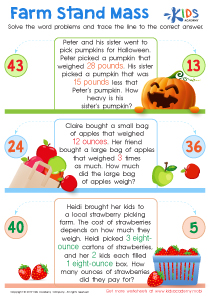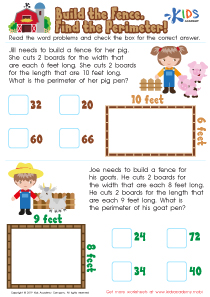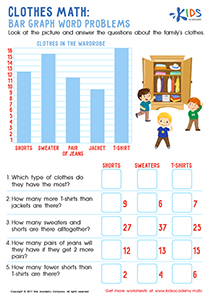Normal Addition and Subtraction Word Problems Worksheets for Ages 3-7 - Page 2
29 filtered results
-
From - To
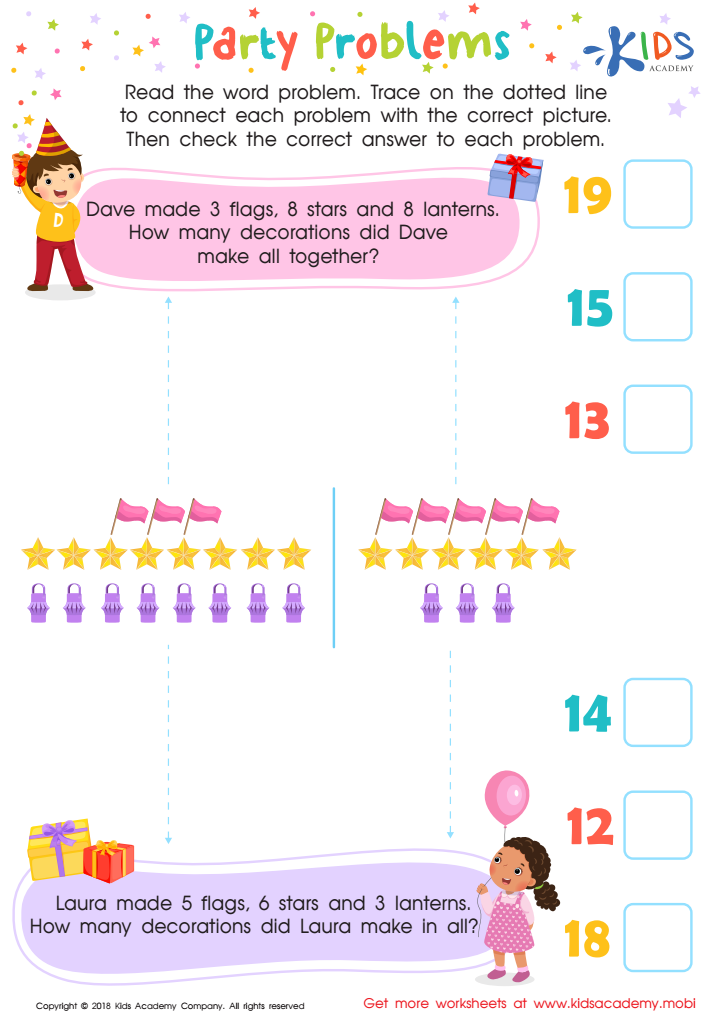

Party Problems Worksheet
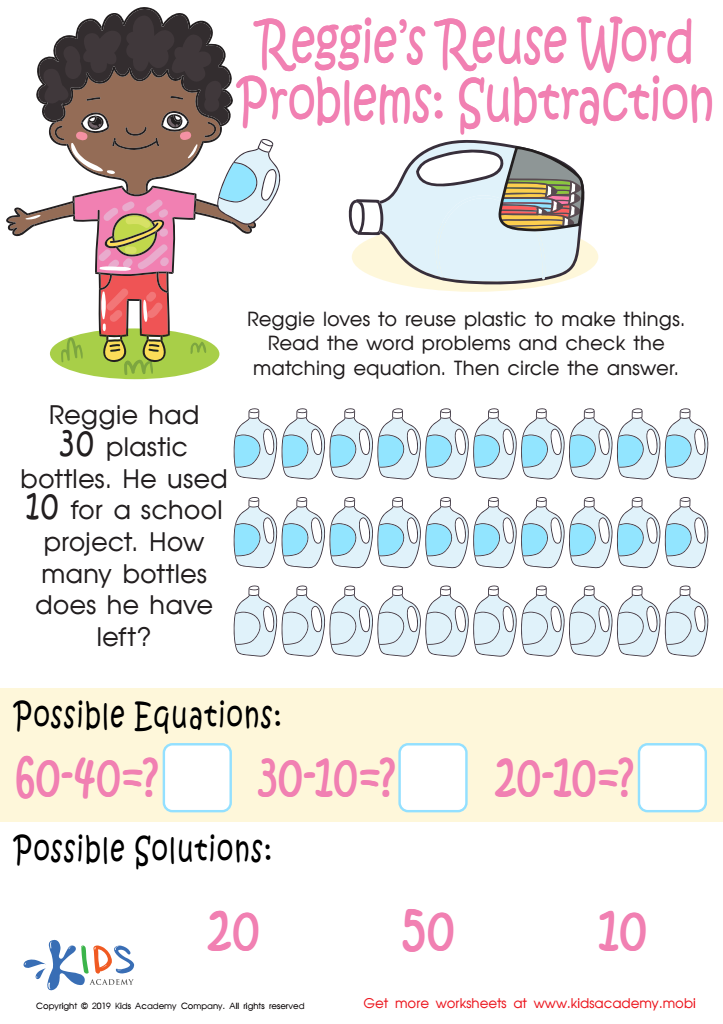

Reggie's Reuse Word Problems: Subtraction Worksheet
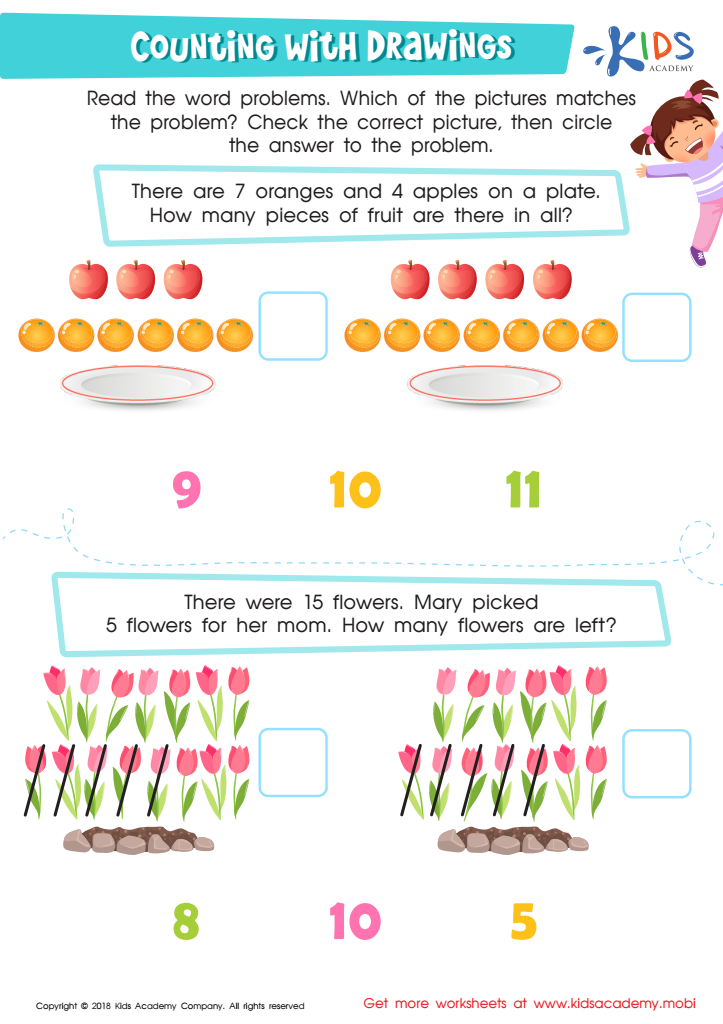

Counting with Drawings:Fruits & Flowers Worksheet
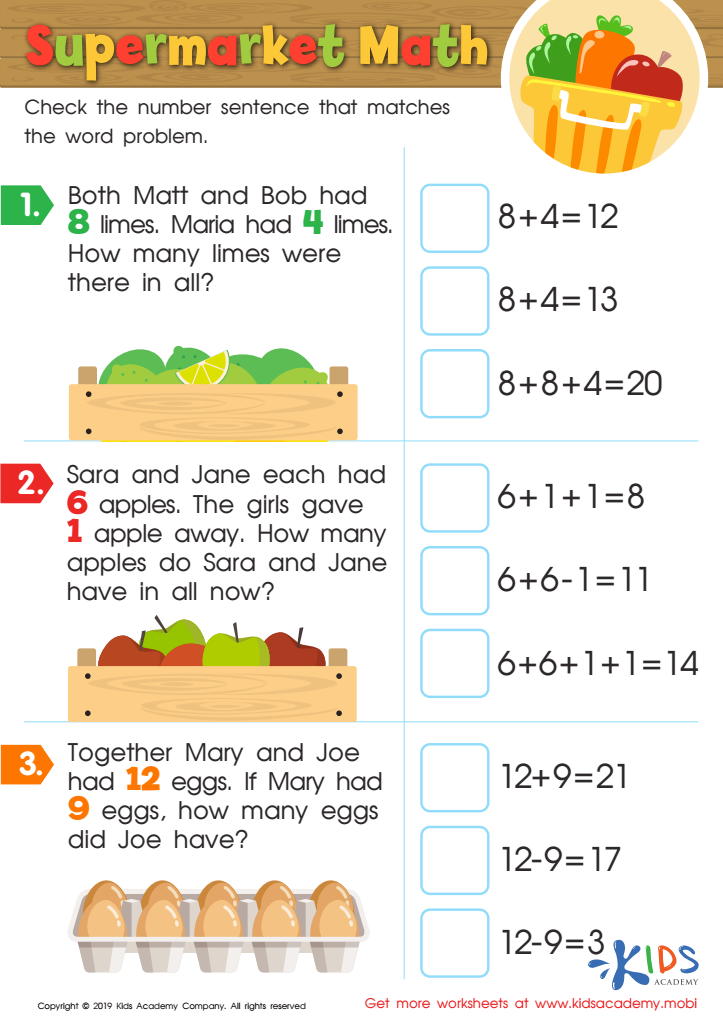

Supermarket Math Worksheet
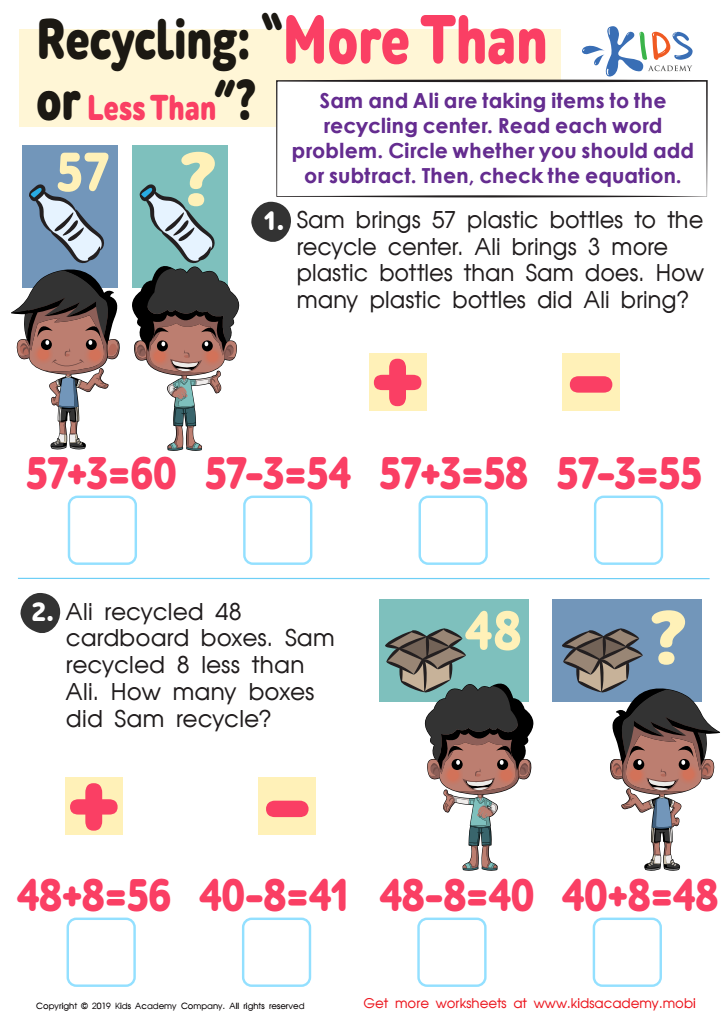

Recycling - More or Less Worksheet
Normal addition and subtraction word problems are crucial for children ages 3-7 as they lay the foundational skills for mathematical understanding and critical thinking. Engaging young learners with word problems helps them make connections between mathematics and real-life situations, promoting deeper comprehension.
For parents and teachers, these problems encourage the development of essential cognitive skills, such as reasoning, problem-solving, and analytical thinking. Through word problems, children learn to interpret narratives, identify relevant information, and translate it into mathematical equations. This process enhances their vocabulary and language skills, as they must comprehend and articulate the scenarios presented.
Additionally, normal addition and subtraction word problems introduce children to the concepts of operations and relationships between numbers in a practical context. This enhances their ability to visualize mathematical concepts rather than merely memorizing facts. Engaging in this type of learning nurtures a positive attitude towards mathematics, which is crucial for long-term academic success.
By emphasizing the importance of these problem types, parents and teachers can foster a love for learning, develop confidence in mathematical abilities, and prepare children for more complex problem-solving tasks in the future. Overall, normal addition and subtraction word problems are indispensable in early childhood education.

 Assign to My Students
Assign to My Students









